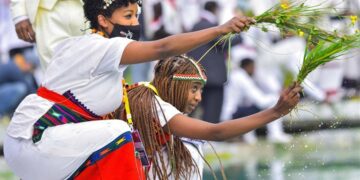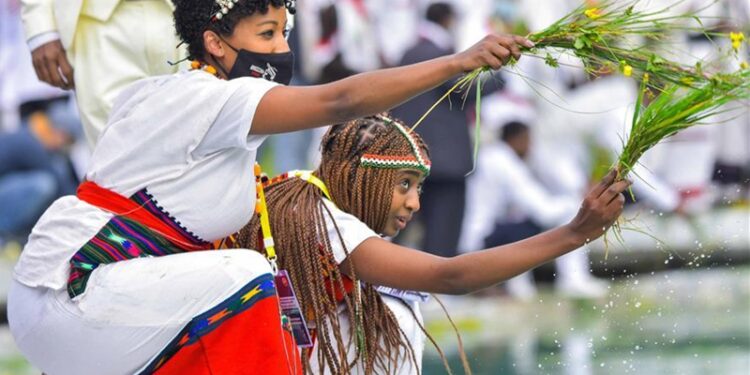By Riches Soberekon
Tens of thousands of Oromos on Sunday gathered at Lake Hora Arsadi in Ethiopia to celebrate Irreecha, a traditional festival that marks the end of the rainy season and the beginning of spring.
The festival is also a significant cultural and political event for the Oromo people, who are the largest ethnic group in Ethiopia.
Dressed in traditional white costumes and adorned with the black-red-white colors of the Oromo flag, celebrants of all ages converged on the lake to give thanks to Waaqa, the ancestral divinity source of life, for the end of the rainy season and the arrival of spring.
In addition to its cultural significance, Irreecha is also a platform for Oromos to express their political demands.
On Sunday, some celebrants chanted slogans calling for the release of imprisoned Oromos and an end to the conflict ravaging the Oromia region.
“Irreecha is our fist, it represents our strength,” said Tola Micha, a 52-year-old celebrant. “We inherited this culture from our ancestors and we must keep it alive.”
While Irreecha is primarily a cultural event, it has also become a powerful tool for Oromos to assert their identity and demand their rights.
The Irreecha festival is a powerful symbol of Oromo identity and unity. It is a time for Oromos to celebrate their culture and heritage, and to demand their rights.
Despite the challenges they face, the Oromo people remain resilient and determined to preserve their culture and traditions. The Irreecha festival is a testament to their strength and spirit.




































